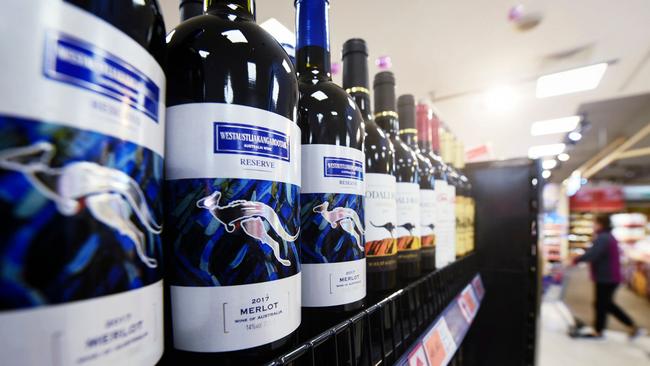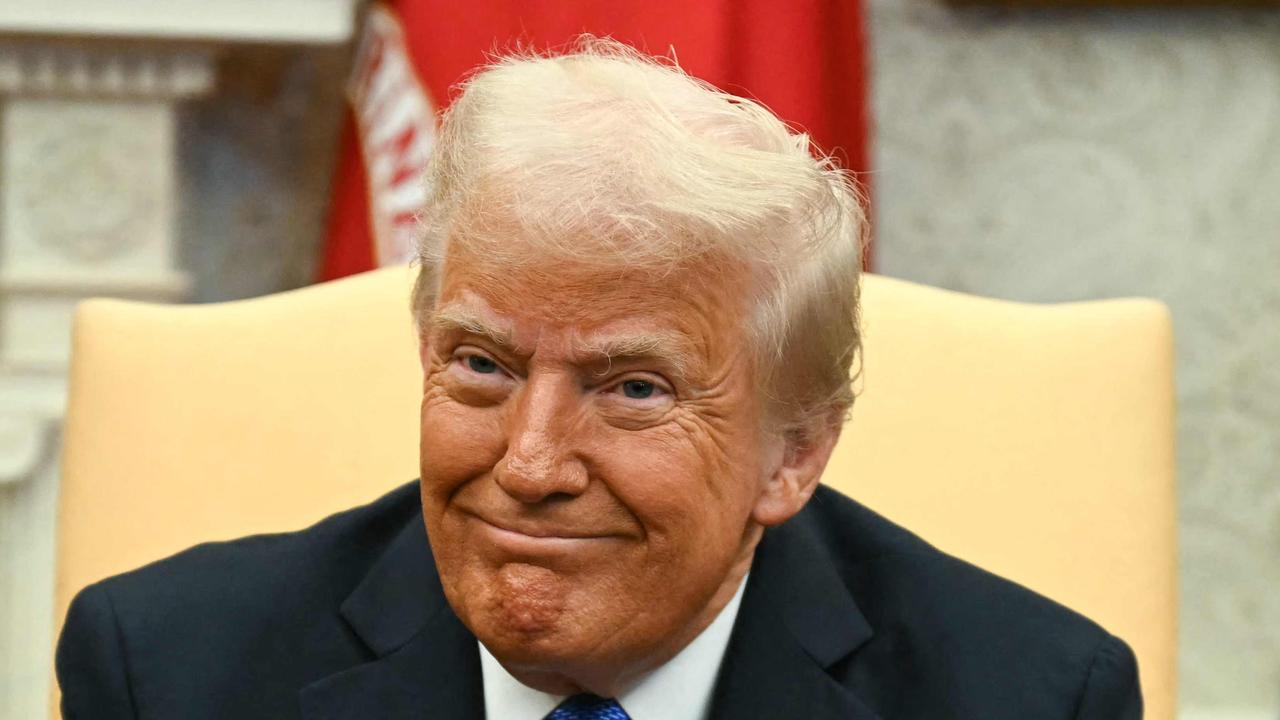Winemakers likely to call for WTO help on China
The nation’s peak industry body for grape growers and winemakers is likely to plead to the World Trade Organisation to decide its dispute with China.

Manufacturing
Don't miss out on the headlines from Manufacturing. Followed categories will be added to My News.
Australian winemakers are pushing to have their case over China’s punishing 200 per cent-plus tariffs to the World Trade Organisation and are looking to the Morrison government to back their claim.
The nation’s peak industry body for grape growers and winemakers will meet after Easter to discuss the industry response to the punishing tariffs on Australian wine imposed by China for the next five years and are looking for the WTO make a ruling on the matter.
The bruising tariffs first announced in November and which in an instant ruined the $1.3 billion China market for the nation’s winemakers was compounded over the weekend when Beijing had decided to impose anti-dumping levies of between 116.2 per cent and 218.4 per cent for five years, effective from March 28.
The formalisation of the tariffs comes as Australia’s agricultural industries are hit with a wave of protectionism that many suspect is being driven by the worsening diplomatic relations between Australia and China and which over the last year have targeted Australian barley, lobster, coal, timber and cotton for special punishment by Beijing.
And the cost to Australia’s foreign income is stacking up, with cotton sales to China worth around $800m, timber at $1.6bn and wine, the latest victim, worth around $1.3bn a year in exports and Australia long having bragging rights to dislodging French wine to be the most popular imported wine.
Federal Trade Minister Dan Tehan said the Australian government was working with the wine industry on how best to respond to China’s decision to impose anti-dumping duties on Australian wine. He held out the WTO route as an option.
“Our first preference is always to work with China on a resolution and our door remains open The WTO dispute settlement system is designed to allow members to settle their differences over trade matters in a respectful manner and Australia will use this system, as needed, to stand up for the rights of Australian exporters,” Mr Tehan said.
Late last year the Federal Government said it was left with no choice but to call in a WTO dispute panel to end its dispute on barley after China imposed an 80.5 per cent tariff on Australian imports.
Australian Grape and Wine chief executive Tony Battaglene told The Australian he had spoken to Mr Tehan on the issue over the weekend.
“We have had discussions internally as well, and we are talking about week after Easter where we will have a meeting and look at the options that we have,” Mr Battaglene told The Australian and whose Australian Grape and Wine industry group represents the interests of the more than 2,500 winemakers and 5,000 wine grape growers working in Australia.
“There are domestic options in China, there is the WTO and the relevant committee within the WTO and so there are a few options we are analysing”.
Mr Battaglene said a final decision had not been made on intervention from WTO but it was looking likely.
“There is a fair chance we will go down that route.”
On Monday one of the nation’s biggest winemakers, Treasury Wine Estates, which owns powerhouse brands such as Penfolds, Wolf Blass and Lindemans, told investors it was sticking by its export led strategy for premium wines.
In a statement that it acknowledged the release by China’s Ministry of Commerce of the final determination in its anti-dumping and countervailing investigations.
“Treasury Wine Estates is executing a detailed response plan to maintain the long-term strength of its business model and brands, with benefits expected to progressively reach their full potential over a two to three-year period. Today’s final determination does not result in any change to those plans,” the company said.
Treasury Wine extracted as much as half of its profits from its once booming China business but will now face an anti-dumping and countervailing duty rate of 175.6 per cent. Already Treasury Wine has been forced to sack around 25 per cent of its staff in China and look for other markets to take up the wine once destined for the banquet tables and restaurants of Beijing and Shanghai.
In the December half Treasury Wine revealed its earnings from mainland China had fallen by more than one third to $78.8m and its sales down 22 per cent to $225.7m. Even with that large earnings slide, China still generated one quarter of Treasury Wine’s earnings in the first half.
Shares in Treasury Wine fell 15 cents to $10.63 on Monday and although the shares have recovered since the initial tariff announcement was made in November the stock fell 25 per cent in the days after the tariffs were first unveiled late last year.
Taylors Wines chief executive Mitchell Taylor, who runs a family owned three generation winemaker in South Australia’s Clare Valley, told The Australian the five-year tariffs confirmed over the weekend have snuffed out for him what was once a booming export market with Taylors not selling a single case of wine to China since October.
Mr Taylor, whose family winery once sent 15 per cent of its exports to China, conceded actions in the WTO take a long time to proceed but may be the best avenue for Australia to take in the trade dispute.
“I would think it’s a good thing to take it further, but we do realise though the World Trade Organisation takes a very long period of time and so it won’t be a fast solution to the situation.
“We are very disappointed because we were building up that market over a long period of time and were getting great momentum out of it, we are hoping these disputes don’t have to go to the World Trade Organisation because that’s a bit like the last resort and we would hope we can start to resume through diplomatic channels putting trade first but not let it get complicated with our sovereignty risk.”
Taylors Wines was hit with a 212 per cent tariff for its wines exported to China.
“It is disappointing Australian wine has been selected out in such a severe manner where other industries appear to be less selected out, and because wine isn’t a commodity I think other industries that are just commodities they do have alternative markets where they can switch relatively quickly where we are talking about value added, high quality branded products and that takes us more time to re-gear our marketing efforts to other parts of the world.”
Originally published as Winemakers likely to call for WTO help on China



